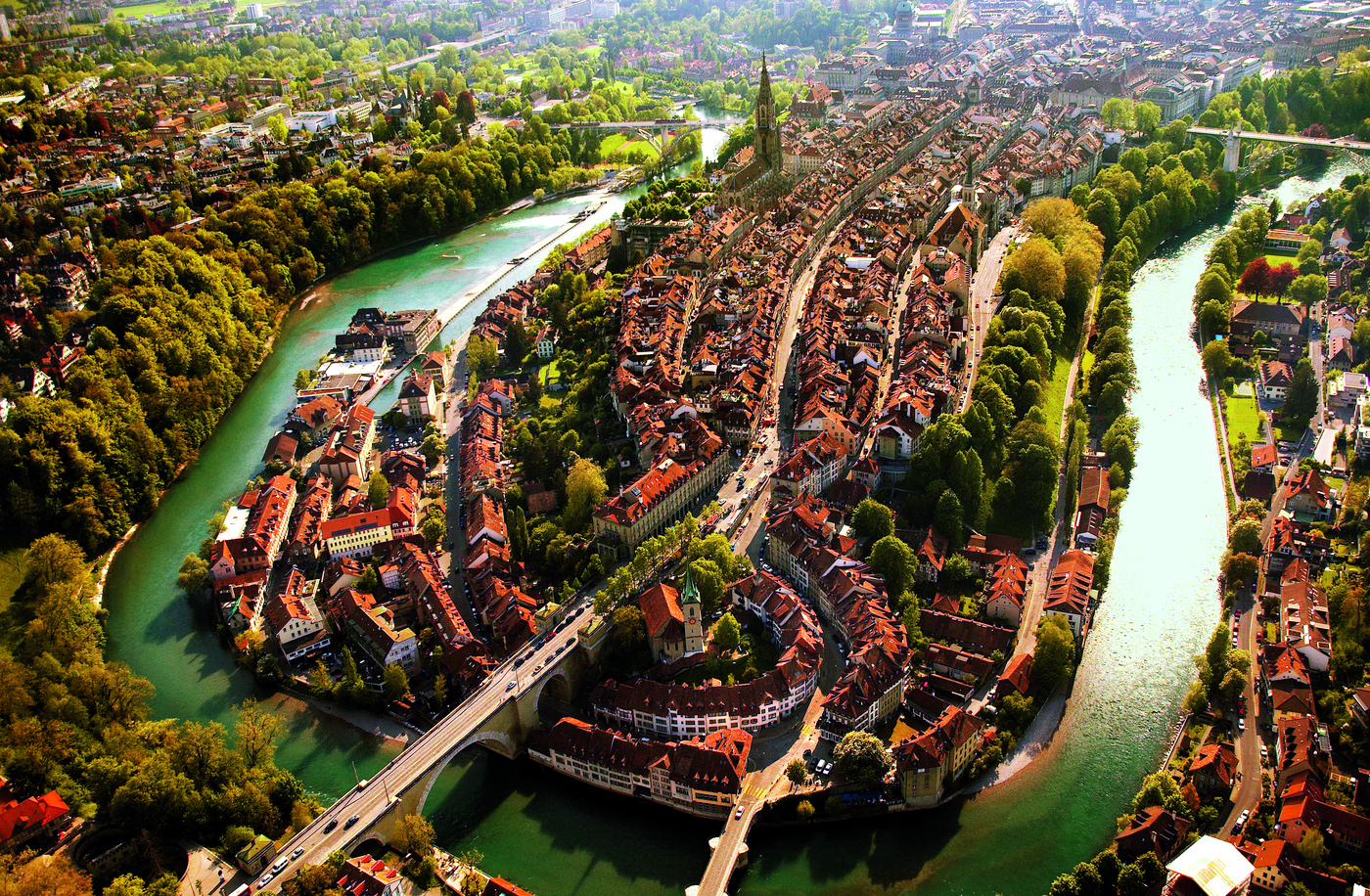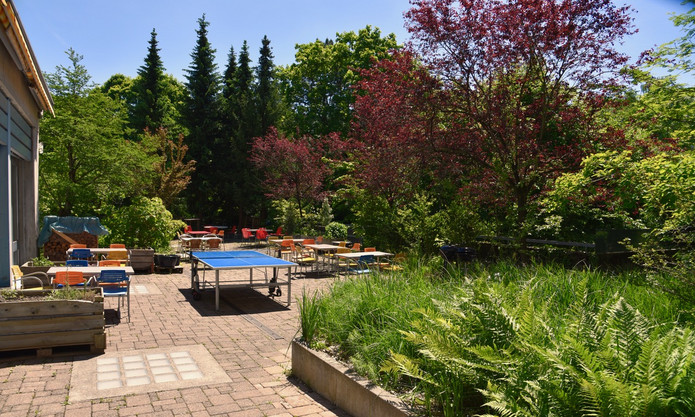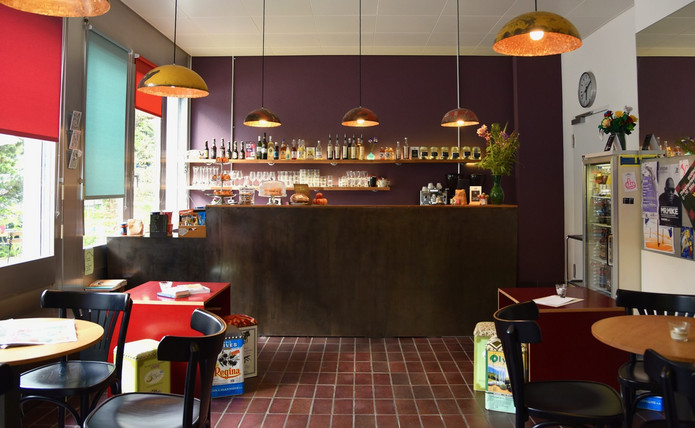Travel to Bern

How to get there
- Travel via Zurich either by night train or by plane. There is only a small airport in Bern.
- City ticket included
- You will be picked up at Bern main station.
- Be aware that the public transport in Switzerland is among the best of the world, but it is also quite expensive.
Packing List
- Water bottle: The tap water in all of Switzerland is potable.
- Sportswear: Switzerland is a beautiful place to be physically active.
- Sneakers or light hiking shoes: You need good shoes if you want to get around such a mountainous place as Switzerland.
- Everything you need or want to have with you for the exams: Don't forget your pens and your lucky charms.
Accomodation
We will stay at Hostel 77 in Bern, only seven minutes from the train station. During MEMO22, the hostel will be there exclusively for us. Before it was a hostel, the building used to accommodate the staff of the Zieglerspital, a former hospital. Hostel 77 has excellent public transport connections, which you will be able to use for free. In no time, you are in the medieval streets of the old town, on the blue-green Aare-river, on top of the Gurten or in the Rosengarten.
You have access to Free Wifi in all areas of the Hostel 77. Lockers are available in every shared room.
At the bar, you can enjoy local beers, Bernese coffee and sweets from the hostel kitchen. A garden terrace, ping-pong table, billiards, table football and piano invite you to stay, socialize and play.


Weather report
Usually, the weather in Bern is very nice at the end of August. The days are still long, the sun is still strong and the temperatures are around 25 °C.
So pack your bathing suits, sunglasses and sunscreen, but don't forget to bring some warm clothes as well. It can get chilly at times, especially in the evening.
A little bit of history
Foundation and early years
The city of Bern was founded in 1191 by Berthold V., Duke of Zähringen and was first mentioned in a document in 1208. According to legend, Bern got its name because Berthold V. wanted to name his new city after the first animal he met on the hunt. This turned out to be a bear, from where Bern not only got its name, but also its heraldic animal. The true origin of the name, however, is still unclear. After the death of its founder, Bern became an Imperial Free City, a privilege that was confirmed by the King of Germany in 1274. Bern now was an independent city-state within the Holy Roman Empire.
Expansion
In 1353, Bern joined the Old Swiss Confederacy and successfully expanded its territory. They invaded and conquered their neighbouring cantons Aargau in 1415 and Vaud in 1536. Through its expansion policy, Bern became the largest city-state north of the Alps.
Early economy
In the beginning, agriculture was by far the most important part of Bern's economy, since the city was not situated near any of the major trading routes. With time, tannery also became important and leather goods from Bern became increasingly popular. With the rise of European commerce, wealthy trading families emerged as the city's aristocracy. In the 15th century, they mainly occupied themselves with strengthening their position in the countryside and mercenary services, so that trade in Bern stagnated. Commerce and craft then bloomed in the 16th and 17th century, with glass paintings being especially in demand.
Religion
When the city was founded, Catholicism was still omnipresent and unchallenged in Europe. This changed with the publication of Martin Luther's theses about the state of affairs within the Catholic Church in 1517. Eleven years after Luther published his theses, Bern also instituted the Reformation. From now on, the city-state assumed church leadership, abolished the monasteries, and supervised the moral life of its subjects.
Modern history
In the course of the French Revolutionary Wars, French troops occupied Bern in 1798 and stripped the town of parts of its territories. Vaud and Aargau now became independent cantons. In 1848, the Swiss Confederation became a federal state with Bern being the seat of the central federal authorities. A few years later, Bern was connected to the railway network, which led to an economic boom. This came to a halt with the beginning of World War I, when there were supply shortages and social tensions in the city.
Even though there were some National Socialist sympathisers, they remained politically ineffective and Bern survived the shortages during World War II unscathed. Bern implemented women's suffrage in 1968 and two years later, the first woman was elected to the city council. In 2008, Bern was one of the venues of the UEFA European Football Championship.
Pictures: Bern Welcome, Hostel 77
